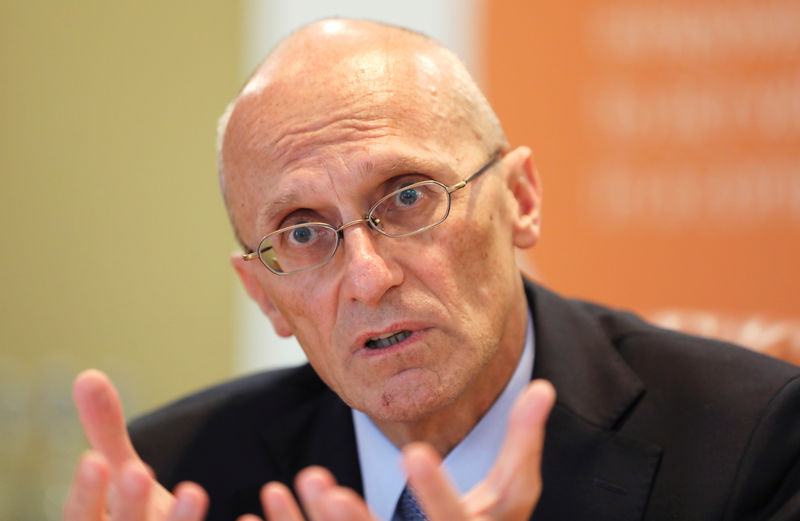By Padraic Halpin
DUBLIN (Reuters) - Several euro zone banks are falling short of the European Central Bank's expectations by paying bonuses in cash, which fosters a short-sighted approach to management, the ECB's top supervisor Andrea Enria said on Thursday.
Enria said rules put in place after the financial crisis a decade ago -- such as bonus caps, claw-back arrangements and how much compensation is paid in cash -- had supported regulators' aim of ensuring banks align schemes with prudent risk-taking.
Due to the complexity of compensation schemes, however, banks can still increase incentives for risk-taking by tweaking small details, he said.
"Quite a few banks still fall short of our expectations," Enria told a conference. "Bonuses are, for instance, still paid out mostly in cash instead of stocks or other financial instruments."
"Thus, compensation is decoupled from the sustainability of the bank. This fosters a short-term view, where today's profits take precedence over tomorrow's stock price and ability to pay creditors," he said.
Financial incentives remain extremely important, Enria said, adding that the Single Supervisory Mechanism (SSM) he heads will soon seek to ensure a more harmonised approach to counter some issues stemming from the fact that countries implement the same rules in different ways.
Enria was speaking in Dublin, where some senior bankers have blamed a strict cap on executive pay and ban on bonuses introduced during the country's banking crisis a decade ago for their difficulty in retaining key staff.
Asked about the appropriateness of retaining such rules, Enria said that as Dublin had to "intervene massively" in the sector and is still a majority shareholder in some banks, it was up to the government to define when the legacy issues were sufficiently dealt with to relax bonus rules.
Irish Finance Minister Paschal Donohoe has indicated that there is little appetite right now to change the rules.
Italian Enria, who took over as the ECB's top watchdog this year having previously chaired the rule-making European Banking Authority, said that banks could still improve compliance processes, namely in the risks around product approval.

He also reiterated that while lenders were making progress in cutting the mountain of non-performing loans (NPLs) inherited from the last recession, the inflow of new NPLs is still "rather high" and suggested that something needs to be fixed in how banks are underwriting their loans.
(Additional reporting Francesco Canepa in Frankfurt; Editing by Toby Chopra and Catherine Evans)